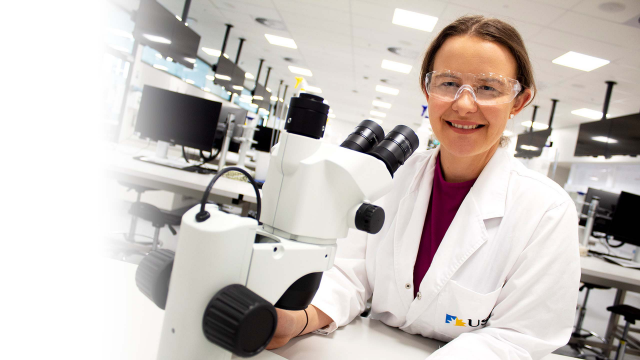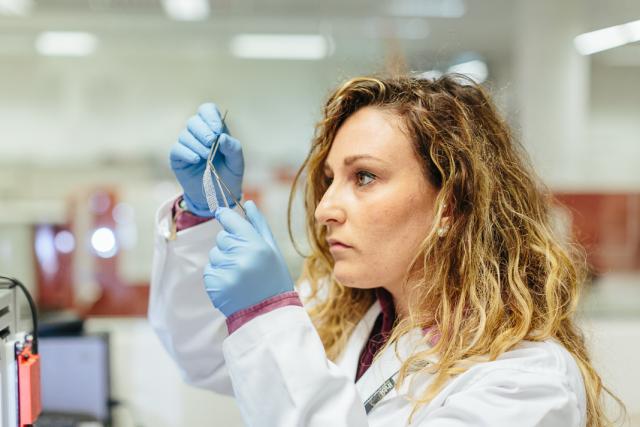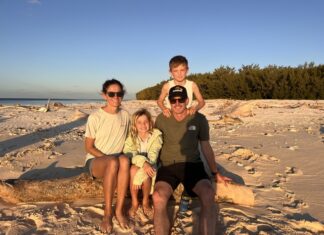The Sunshine State’s bio-industries are set to skyrocket, sparking demand from women for insights on how they can reach the top jobs in the fast-growing sector.
The biomedical industry’s annual gross value added to Queensland’s economy has surged by 47 per cent to $2.11 billion in the past five years, creating 3000 more jobs.
Already home to about 1500 biomedical and life sciences companies, this growth shows no signs of slowing down with healthcare giants such as Sanofi choosing Queensland to set up a global vaccine hub.
Deputy Director-General of State Development, Michele Bauer, said this boom meant flow-on benefits for the economy, and more opportunities for women to progress into leadership roles.
“It’s an exciting time to be in the sector, with opportunities to join the growing number of bio-businesses in Brisbane and regional Queensland,” Ms Bauer said.
“While a growing number of women are in the STEM workforce, female leadership is still under-represented with women holding 23 per cent of senior management roles.
“Women in bio-industries have told us they want targeted professional development and insights on career pathways, and we’re backing them to get to that next level.”
It comes as the Department of State Development holds its first industry forum for women in biomedicine and biotechnology in collaboration with the University of the Sunshine Coast Moreton Bay.
“We’re growing this sector to attract new investment to Queensland and create more specialised jobs that could shape the future of healthcare,” Ms Bauer said.
“It’s important to stage this type of event to allow emerging and aspiring female leaders to gain insights into industry opportunities and challenges, hear from inspiring women in this field and make valuable contacts across the bio-industries.
“To build a highly-skilled workforce we must attract and keep top biomedical talent here – and that includes our best and brightest female researchers and innovators.
“Queensland has become the ideal place to learn, teach or work with high-value businesses and world-class researchers and clinicians across a range of sectors.
“Being on the map as a bio-industries hotspot also means you don’t have to go overseas to get experience. You can build your career right here in Queensland.”
The industry and networking forum on 21 February will bring together more than 100 Queensland women in the biomedical and biotechnology sectors.
Among them will be clinical trials specialist Melanie Gentgall, whose passion for sharing knowledge with the research workforce led to her transition from nurse to chief executive officer of a national, not-for-profit start-up.
Ms Gentgall built a business from the ground up as the founding CEO and co-creator of PRAXIS Australia Ltd, a company offering education and training in clinical trials, research and research ethics.
Today she is part of Queensland’s growing science community as deputy director of the University of the Sunshine Coast Clinical Trials – and hopes to see more women seizing leadership opportunities.
“Since its earliest days, women have contributed significantly to the economic and reputational success of our local biotech and clinical trials industries across Australia,” Ms Gentgall said.
“Our workforce at all levels is heavily represented by women from various science, technology and health discipline-based backgrounds.
“Whilst gender parity has improved, women are still underrepresented at the upper ranks of all settings where biomedical innovation occurs.
“Sharing stories of female leaders is a way of improving representation – after all – you can’t be what you can’t see.”
For reproductive physiologist Georgia Kafer, inspiring the next generation of scientists is all in a day’s work.
Leading a foetal and reproductive health laboratory at the University of the Sunshine Coast, Dr Kafer collaborates with a variety of scientists from many disciplines across Australia, New Zealand, Japan and Pacific Islands region on science and public health research projects.
The lecturer in Biomedical Science at the University’s Moreton Bay campus is passionate about sharing that experience in the classroom and encourages Queensland girls and women to explore a biomedical career.
“Building a successful career in STEM is hard for everyone, but it is extra challenging for women and girls for a variety of reasons,” Dr Kafer said.
“I was very fortunate to have a strong female mentor during my PhD at CSIRO, and I am still very fortunate to have fantastic female collaborators and colleagues both at UniSC and across the globe who I can bounce ideas off and feel supported by.
“Sharing experiences is a great way to make the proverbial waters warm and welcoming for women and girls who might want to dip their toes or perhaps even immerse themselves completely in a STEM career.”
To learn more about the sector and Queensland’s Biomedical 10-Year Roadmap, visit statedevelopment.qld.gov.au/industry/priority-industries/biomedical









